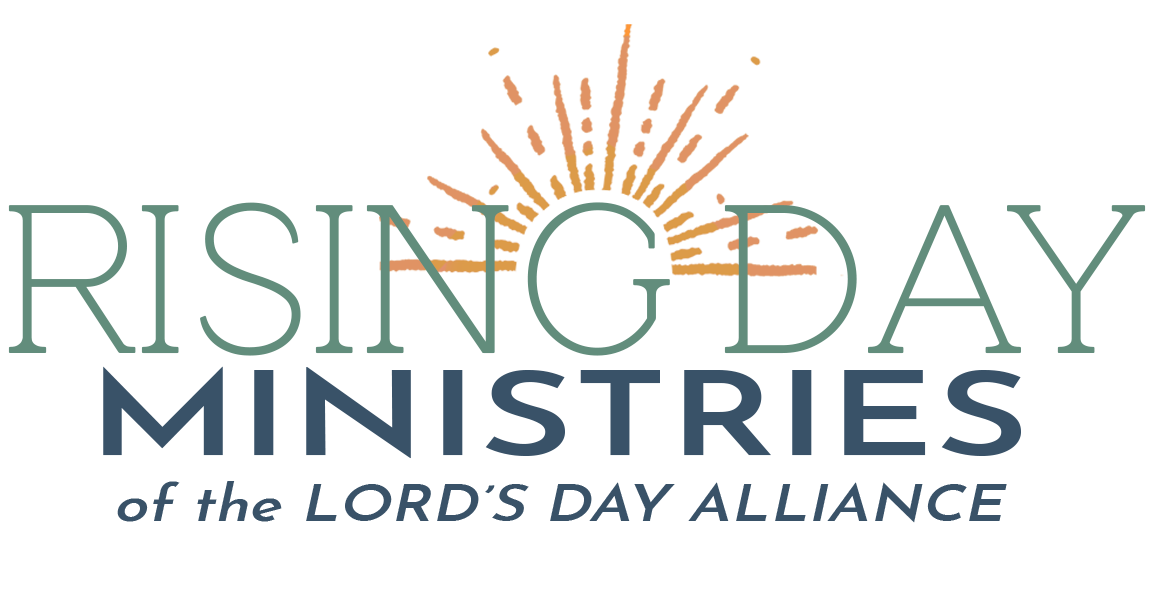Grieving Well
By Rev. Dr. Larry Golemon, LDA Co-Director
Lent is a season of remembrance… of the Lord’s fasting in the wilderness, his sufferings, his death for our sake. But it is also a remembrance of our griefs, our own shortcomings, our injuries against others, and our mortality. Sabbath can be like this, a time set aside for remembrance and repentance, as they go hand in hand.
This year, Lent draws me into a season of grief: anniversaries of loss in my life that are irreversible and final. Chief among them is the loss of my younger brother a year ago… sudden, undeserved, perhaps unnecessary. Grief and moral injury remain. So I remember him in cameos as they arise in my mind:
I remember tip-toeing into Jonathan’s nursery when I was 10 to see just how little he was at first. I remember removing his diapers as he grew and his giggle of peeing in the air as I scrambled for a fresh one (this became a game for us). I remember his golden hair, sparkling blue eyes, and disarming smile.
I have a wise spiritual friend who shared with me: “memory is the great healer of grief.” Remembrance, anamnesis in the Bible, is an ancient practice of re-presenting past moments in the present. Re-collecting, re-calling, re-membering the fragments in our hearts so we see and experience someone clearly again. Remembering is to make someone present again.
I remember building Legos with Jon, chasing him into the woods, climbing trees, rolling together in the grass with the dog, and playing catch. Above all I remember his tenderness as a child.
Loss feels dangerous to us when it evokes fear: fear of feeling someone’s presence again, fear of seeing his eyes, of hearing his laugh, or “feeling” his or her embrace again. Loss brings pain, tears and cries, especially about difficult times; so part of us avoids it.
I remember Jon’s ability to disappear and hide in the house, not in glee, but in fear of conflicts with an addicted parent and the sobs in the room next to his. I remember now my sense of abandoning him to all that when I left for college, and leaving my dear sisters to take care of him.
Remembering involves missed opportunities to share in another’s life, and the future opportunities denied him and loved ones. Loss is a thief in the night, that steals time away from what could have been.
I do have distant memories of my brother as a teenager, young adult, and strapping young man—his achievements, his physical ability on a sailboard or the basketball court, and his remarkable ability to make friends. I remember his off-color jokes. I remember his successful career in law enforcement, his life-long sacrifice to look after our mother, his finding love later in his life, and his patient fathering that I admired. Just imagine what could have unfolded for him…. And I remember not being with him to share many of these turning points in his life, and the sparkling moments when I was.
Sudden, unnecessary loss inflicts moral injury to our basic beliefs with questions of “why him?”, “why not her?”, “why not me?“, “why now?”. Loss raises questions about death itself and how it can come like a roll of the dice, blind fate, or even the hand of God. This is why, in Lent, that we remember the Lord’s innocent suffering and death made present again in Scriptural devotion and the Lord’s supper. As He died, so some of our loved one’s die: suddenly and undeservingly.
I remember the fateful phone call from my sister: “Jon had a sudden heart attack. It took a long time for the ambulance to come. It doesn’t look good….” And it wasn’t. I remember the cries to heaven, the anger, the injustice to his young children, the empty comfort of “he’s with God now”…. The only Scriptures that made sense were the Psalms of lament.
So, each Sabbath in Lent, I will remember my brother as a gift to so many people. I will remember in tears of sorrow and joy, chest-pains of not being there, fond recollections when I was, and an abiding admiration for the man he had become. Yes, remembrance can bring remorse, but it can also bring repentance and a new pledge to never forget him and to never miss opportunities to connect with loved loves still living.
“Do this in remembrance of me,” says the Lord. Sabbath is like the Sacrament by lifting up the memories of those lost to the Lord, who died on their behalf. Our memories of loved ones combine with those of Him as we all await Easter morning.
